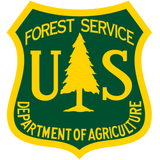
Coir Fiber Log – 12" Diameter | Biodegradable Erosion Control
This product is currently experiencing high demand and is temporarily out of stock until 12/15. However, you can secure your order by placing a backorder, and we'll ship it to you as soon as it's back in inventory.
Don't miss out! Discover more of our Erosion Control Blankets.
Sandbaggy Coir Log A Natural, Sustainable Solution for Erosion Control
Stop topsoil loss with Sandbaggy's coconut fiber log. Crafted from natural coir, this densely packed roll is designed to slow water flow, capture sediment, and create a stable foundation for planting on hillsides and shorelines.
This eco-friendly log is designed to facilitate long-term ecological restoration. As it biodegrades over 2-5 years, it enriches the soil, helping establish a permanent, living barrier that controls erosion long after installation.
Looking for more options? Shop all Sandbaggy Erosion Control Blankets & Wattles.
- Installation requires stakes, which are sold separately.
- Natural shedding of some coconut fibers during handling is normal.
- The 2-5 year lifespan is an estimate and varies based on site conditions.
- Larger Size Available: 16" Diameter Coir Log
-
Pricing: Prices shown above are for the 5 ft coir logs. The 10 ft logs include a markup and are priced higher per unit scroll down or click here to view qty price breakdown by size
Specs
-
Dimensions:
- 5 ft L x 12 in Dia
- 10 ft L x 12 in Dia
-
Weight:
- 26 lbs (5 ft size)
- 52 lbs (10 ft size)
- Density: Approx. 7 lbs/cubic ft
- Filler Material: 100% Coconut Fiber
- Outer Netting: Bristle Coir Twine
- Mesh Opening: 2 in x 2 in
Features
- 100% Biodegradable & Eco-Friendly: A sustainable solution made from natural coconut that requires no chemical treatments. It decomposes fully, enriching your soil and eliminating plastic pollution concerns, making it perfect for environmentally sensitive areas.
- Promotes Robust Vegetation Growth: This coir fiber log acts as a natural nursery for plants. Its porous structure retains moisture and creates a nurturing environment for seeds and saplings to establish strong, permanent root systems for lasting erosion protection.
- Effective on Slopes and Banks: The log’s densely packed fibers effectively reduce water velocity, filter runoff, and trap dislodged sediment. This is a proven method for stabilizing soil on hillsides, protecting riverbanks, and managing construction site perimeters.
- Lasts 2-5 Years: *Dependent on site condistions
- Install with Wood Stakes: A minimum of 5-6 stakes per log is recommended.
How to Install:
For the best results, follow these installation best practices. Proper installation is critical to the performance of coir logs for slopes and other terrains.
- Prepare the Site: Clear the area of rocks or debris. Dig a shallow trench 3-4 inches deep along the contour line where the log will sit.
- Place the Log: Lay the coir log firmly in the prepared trench. On a slope, always start at the bottom and work uphill, placing logs perpendicular to the direction of water flow.
- Stake the Log Securely: Drive untreated wooden stakes (2”x2”x36” recommended) through the log until they are nearly flush with the log's surface. A minimum of 5-6 stakes per log is recommended.
- Join Multiple Logs: To cover areas longer than 10 feet, overlap the ends of two logs by at least 12 inches. Use biodegradable coir twine to tie the overlapped ends together securely.
- Backfill and Compact: Use the excavated soil to backfill around the log. Pack the soil firmly, especially on the uphill side, to create a tight seal that prevents water from flowing underneath.
- Establish Vegetation: Plant native seedlings or live stakes directly into the log or in the soil immediately behind it. This step is key to creating a permanent, natural erosion control method.
Qty Pricing Breakdown by Size
👉 Scroll to view all pricing.
| Qty | 12" x 5 ft | 12" x 10 ft |
|---|---|---|
| 1 | $155 ($155.00 ea) |
$1,200 ($1,200.00 ea) |
| 2 | $308 ($154.00 ea) |
$1,320 ($660.00 ea) |
| 5 | $765 ($153.00 ea) |
$1,840 ($368.00 ea) |
| 10 | $1,500 ($150.00 ea) |
$2,300 ($230.00 ea) |
| 20 | $2,100 ($105.00 ea) |
$3,300 ($165.00 ea) |
| 40 | $3,400 ($85.00 ea) |
$5,400 ($135.00 ea) |
| 80 | $5,200 ($65.00 ea) |
$12,080 ($151.00 ea) |
| 600 | $31,200 ($52.00 ea) |
$61,200 ($102.00 ea) |
FAQ
What's the difference between a coir log and a coir wattle?
While both are used for sediment control, coir logs are typically denser and have a larger diameter. This makes logs more robust for applications needing greater strength and a longer lifespan, such as streambank stabilization. Wattles are often smaller and more flexible.
How do I stop soil erosion on a slope with this product?
The key is proper installation. By trenching the log along the slope's contour, staking it securely, and backfilling, you create a barrier that slows water, traps sediment, and allows vegetation to establish, which provides the best long-term solution.
How many stakes do I need for a 10 ft coir log?
Typically 5-6 stakes are needed. More stakes may be needed for steeper slopes or unstable soil conditions.
When should I use a high-density coir log?
Standard density logs are great for most common applications like gentle slopes. Choose a high-density log for more demanding conditions, such as steeper grades, areas with higher water velocity, or more challenging environmental conditions where extra durability is required.
Our Customers
Our sandbags, burlap bags, and landscape staples are trusted by
 Marine Corps
Marine Corps
 US Army
US Army
 Park Service
Park Service
 Forest Service
Forest Service
 Red Cross
Red Cross
 Walmart
Walmart

















